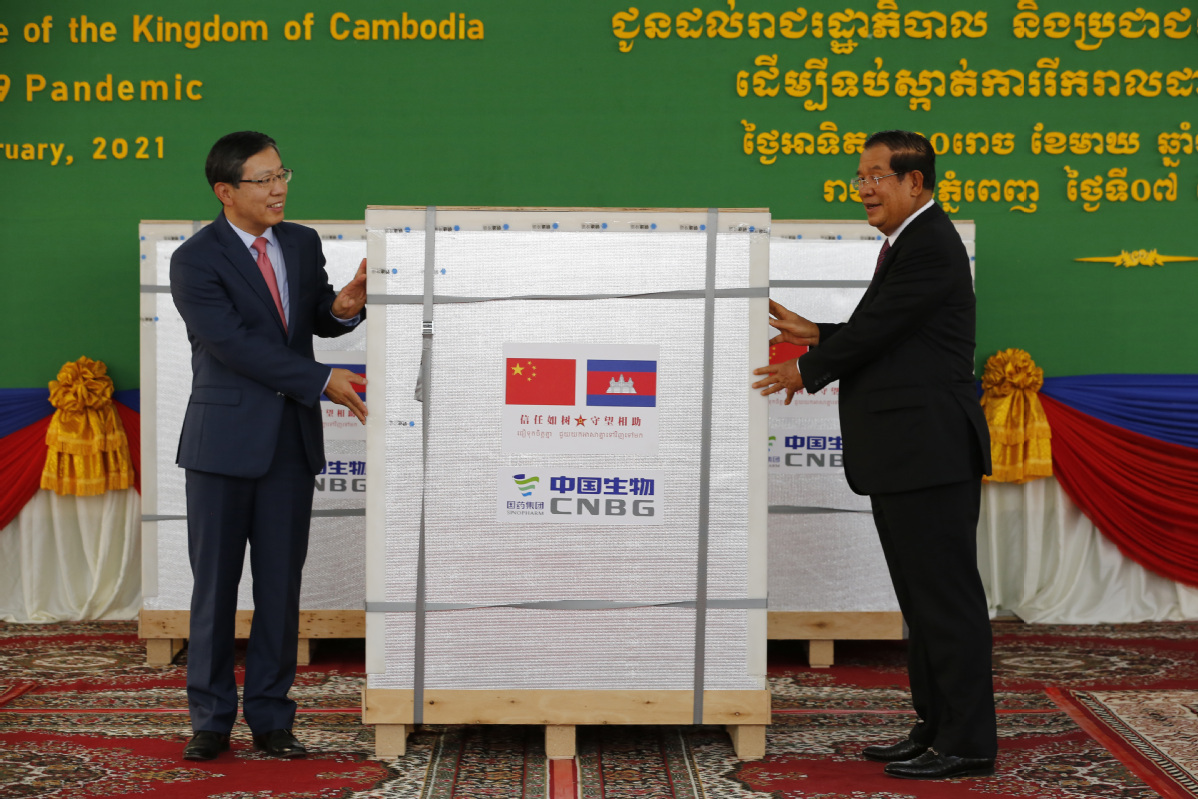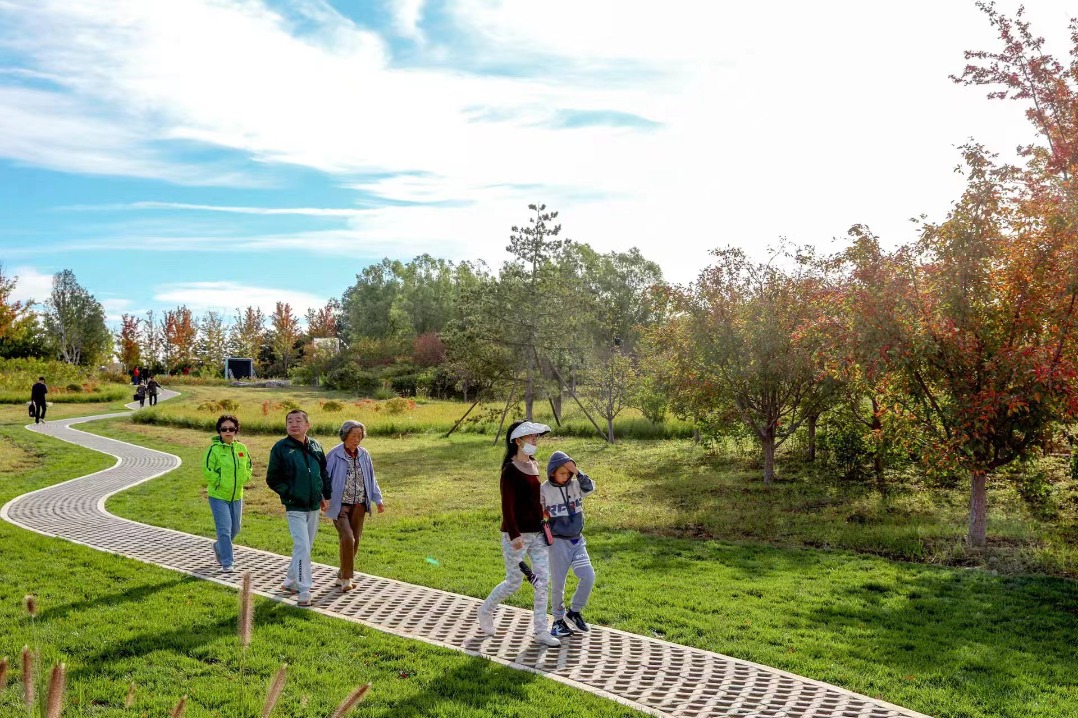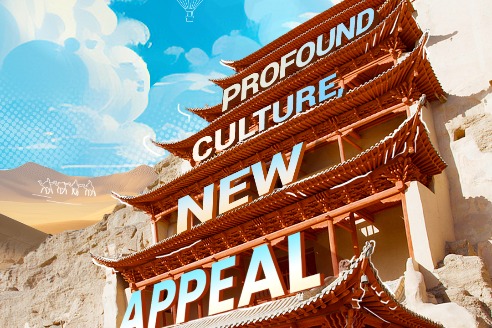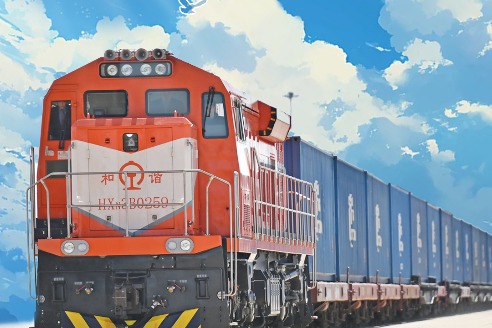Chinese vaccines win acclaim


Leaders from around world express appreciation, confidence in safety and reliability
From front-line workers to heads of state, more people around the world are praising and welcoming Chinese-made COVID-19 vaccines.
"Chinese vaccines have been proved to be safe and reliable," said Laotian Minister of Health Bounkong Syhavong upon receiving Chinese-donated Sinopharm vaccines in Vientiane, the capital of Laos, on Monday.
At about the same time across the Pacific, Peruvian President Francisco Sagasti expressed his appreciation to China as he welcomed the arrival of the first 300,000 doses of Sinopharm vaccine from China. Likewise, Chilean President Sebastian Pinera thanked China on Jan 28, and Cambodian Prime Minister Samdech Techo Hun Sen expressed his gratitude for donated vaccine on Sunday.
Peru's next vaccine shipment is scheduled to arrive in Lima over the weekend, Sagasti said. Health professionals, armed forces members, police officers, firefighters and health workers will be given priority for inoculation in the country, where 42,000 people have died of COVID-19.
Sinopharm's vaccine and that of Chinese company Sinovac are at a "very advanced stage" of the World Health Organization's Emergency Use Listing Procedure assessment. China is honoring its commitment to making vaccines a global public good, as emphasized by President Xi Jinping, and has joined the WHO's global COVAX program to provide 10 million doses of COVID-19 vaccines.
Chinese vaccines have been used to vaccinate millions of people in China as well as in dozens of countries in Asia, Africa, Latin America and Europe, Cambodian Deputy Prime Minister Hor Namhong Namhong noted on Sunday.
"According to information I received, these vaccines have had efficacy and no severe side effect," he said. "Many leaders of these countries have been inoculated voluntarily with these Chinese vaccines."
Foreign Ministry spokesman Wang Wenbin said on Monday that China is providing vaccine aid to 53 developing countries, including Pakistan. China also has exported vaccines or is in the process of exporting vaccines to 22 countries, he added.
Nawal Al-Kaabi, principal investigator of the phase three clinical trial for a COVID-19 vaccine in the United Arab Emirates, said the UAE-together with Bahrain, Egypt and Jordan, where Chinese-made vaccines are also being rolled out-is studying the long-term effects of the vaccine in line with standard safety protocols.
The Sinopharm vaccine is "the world's first inactivated vaccine against COVID-19", which essentially means that manufacturing this vaccine will be easier than making its counterparts, said Al-Kaabi, also chairwoman of the National COVID-19 Clinical Management Committee.
"There have been no severe adverse reactions to the Sinopharm vaccine," she said, adding that patients have shown minor side effects-"which is a good sign and means your immune system is reacting correctly".
"The Sinopharm inactivated vaccine can also be transported at normal refrigeration temperatures, making it suitable for less-developed countries to transport and store it," she added.
In Brazil, Andre Lobato, a researcher at the Center for International Relations at Fiocruz, a biological sciences research institute in Rio de Janeiro, expressed appreciation for CoronaVac, the vaccine developed by China's Sinovac Biotech and partially manufactured in Brazil by the Sao Paulo-based Butantan Institute.
"Unmistakably, the inactivated vaccine is a light of hope for Brazilian people," Lobato said. Since Jan 17, about 3.5 million people have been inoculated with Sinovac. "Skepticism about Chinese vaccines is being demolished by facts, solidarity and need."
Namhong of Cambodia stressed that COVID-19 vaccines should not be a contentious issue among countries and producers, but should be used to keep people around the world safe, especially in developing countries.
In an interview with the German newspaper Welt am Sonntag published on Sunday, Austrian Chancellor Sebastian Kurz said Austria is ready to produce Russian and Chinese COVID-19 vaccines if they are registered by the European Medicines Agency.
"When it comes to vaccines, what matters is efficiency, safety and quick access, and not geopolitical strife," Kurz said.
Czech Prime Minister Andrej Babis, in talks with Hungary's Prime Minister Viktor Orban in Budapest on Friday, also emphasized that "the coronavirus vaccine is not a political issue but a safety issue, so the origin of the vaccine cannot be made a political issue either." Hungry has granted approval to Chinese and Russian vaccines.
Earlier, European Commission President Ursula von der Leyen, German Chancellor Angela Merkel and French President Emmanuel Macron expressed openness to EU approval of Chinese and Russian vaccines following due procedure with "all the data".
A commentary published on the website of The New York Times on Feb 5 called for a change in attitude toward Chinese vaccines.
The Indian and Malaysian experts who co-wrote the opinion piece said, "They, too, work, and they can help fill shortages everywhere."
Sergio Held in Cajica, Colombia, and Xinhua contributed to this report.
- Wuxi hospital accused of rampant fraud
- Heavy-duty gas turbine undergoes first ignition test
- Returning talent establish innovative international collaborations
- Credit system could help reduce medical scams
- BRI event highlights need for academic exchanges
- Cultural tourism trend reflected in National Day holiday travel





































